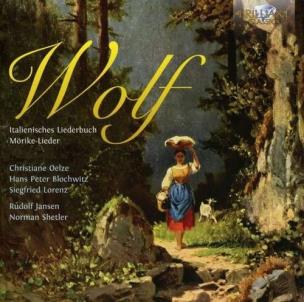- Regulamin
- Koszty dostawy
- Kontakt
- Dziś w ofercie 235 777 produktów
KSIĄŻKI
- Albumy
- Beletrystyka
- Biografie
- Dla dzieci i młodzieży
- Edukacja
- Ekonomia i biznes
- Ezoteryka
- Historia
- Informatyka
- Kalendarze
- Komiksy
- Kryminał i sensacja
- Kultura i sztuka
- Literatura faktu
- Literatura kobieca
- Literatura piękna
- Medycyna
- Nauka języków obcych
- Nauki humanistyczne
- Nauki przyrodnicze
- Nauki ścisłe
- Podręczniki
- Poradniki
- Prawo i administracja
- Przewodniki i podróże
- Psychologia
- Religia
- Sport
- Technika
- Zdrowie i uroda
ZABAWKI
- Artykuły dla niemowląt
- Bączki
- Bujaki i skoczki
- Ciągnij / pchaj
- Dla niemowlaka
- Grzechotki i gryzaki
- Karuzele i pozytywki
- Maty i centra zabaw
- Projektory i lampki
- Sortery i piramidki
- Zabawki
- Edukacyjne i kreatywne
- Figurki
- Klocki
- Lalki
- Pojazdy
- Pluszaki i maskotki
- Sport i rekreacja
- Zabawa w dom
- Zabawki drewniane
- Puzzle
- Do 200 elementów
- 201-500 elementów
- 501-1000 elementów
- Ponad 1000 elementów
- Puzzle 3D
ART. PAP
- Artykuły biurowe
- Artykuły piśmiennicze
- Bloczki i kartki samoprzylepne
- Dziurkacze
- Kalkulatory
- Nożyczki i nożyki
- Skoroszyty
- Teczki
- Wizytowniki
- Zszywacze
- Artykuły szkolne
- Akcesoria szkolne
- Modelowanie
- Notatniki i zeszyty
- Piórniki
- Plecaki i torby
- Pojemniki na śniadanie
- Pomoce naukowe
- Przybory matematyczne
- Przybory rysunkowe
- Upominki i gadżety
- Akcesoria do książek
- Artykuły balowe
- Breloki i zawieszki
- Drobiazgi, różności
- Kubki
- Oferta Świąteczna
- Papeteria, kartki i naklejki
- Skarpetki Many Mornings
- Upominki
GRY
MULTIMEDIA
- Audiobooki
- Beletrystyka
- Biografie i wspomnienia
- Dla dzieci i młodzieży
- Fantastyka
- Filozofia i religia
- Historia
- Literatura faktu i reportaż
- Poradniki
- Sensacja i kryminał
- Filmy DVD/BD
- Animowane
- Biograficzne
- Fantasy
- Horrory
- Komedie
- Romanse
- Science Fiction
- Sensacyjne / kino akcji
- Thrillery
- Muzyka CD
- Alternatywna
- Blues
- Dla dzieci
- Jazz
- Klasyczna
- Piosenka aktorska i poetycka
- Pop
- Rock
- Świąteczna i kolędy
- Akcesoria GSM
- Głośniki
- Kable i adaptery
- Klawiatury
- Myszy
- Słuchawki
PROMOCJE
ZDROWIE
LEGO

Wolf: Italienisches Liederbuch, Morike - Lieder
Wydawca:
Brilliant Classics
EAN:
5028421947051
oprawa:
Plastikowa
format:
14.0x12.0cm
język:
angielski
rok wydania:
2013
(0) Sprawdź recenzje
Opis produktu
Zasady bezpieczeństwa
Although Wolf was not at all happy about being branded a composer of the late Romantic German lied, he did in fact devote most of his career to the genre, and the labelling seems an especially fair one given that he did effectively bring the lied to a final, splendid blooming, extracting it from the sphere of domestic music-making and using declamatory methods to create an art form based on the poetic content in the spirit of the author.
This two-CD compilation celebrates Wolf's genius for song writing through presenting two of the most important lieder cycles in music history. Published in 1888, the 53 Mörike-Lieder heralded a turning-point in the composer's style, with Wolf henceforth adopting an equally intellectual approach to the piano accompaniment and voice writing, also traversing an incredibly broad palette of characters and moods -- from the dramatic, almost apocalyptic ballad quality of 'Der Feuerreiter' to the complete gaiety of 'Die Fussreise'. The Italienisches Liederbuch followed a few years later, with the first half of the cycle published in 1892. German in spirit, all of the songs are set to Paul Heyse's poems, which are in turn free translations of Italian folk songs. Wolf was undoubtedly attracted by the epigrammatic quality of the prose, with its many variations on the eternal, universal theme of love as well as its frequent use of irony and wit.
Assembling three of Germany's leading singers, supported by the deft accompaniment of Dutch pianist Rudolf Jansen and Austrian-American pianist Norman Shetler, this collection is a compulsory buy for any song aficionado. Connoisseurs of the late-Romantic will also revel in these still underrated works, which combine the sensuality of Wagner with Schumann's genius for scene painting.
Other information:
- Recorded 1984 and 2002.
- Contains detailed notes on the music and sung texts.
- Austrian composer Hugo Wolf is primarily known as an innovator of the Lied genre. Harmonically influenced by Wagner he created a highly individual style, in which the content of the poems he set to music were expressed in a concentrated way, the essence presented in direct, sometimes shocking and confronting gestures: a far cry from the cozy, strophic narratives of Schubert and other Romantics.
- Superb interpretations, with an unerring sense for Wolf's particular wry humour, irony and melancholy, by Christiane Oelze, Hans-Peter Blochwitz and Siegfried Lorenz, the important piano parts being played with great insight by Rudolf Jansen and Norman Shetler.
CENA:
25,35
zł
Cena detaliczna:
29,90 zł
15%
rabatu
Najniższa cena z ostatnich 30 dni: 25,41 zł
Produkt niedostępny
Uwaga!!!
Ten produkt jest zapowiedzią. Realizacja Twojego zamówienia ulegnie przez to wydłużeniu do czasu premiery tej pozycji. Czy chcesz dodać ten produkt do koszyka?


Wybierz wariant produktu
